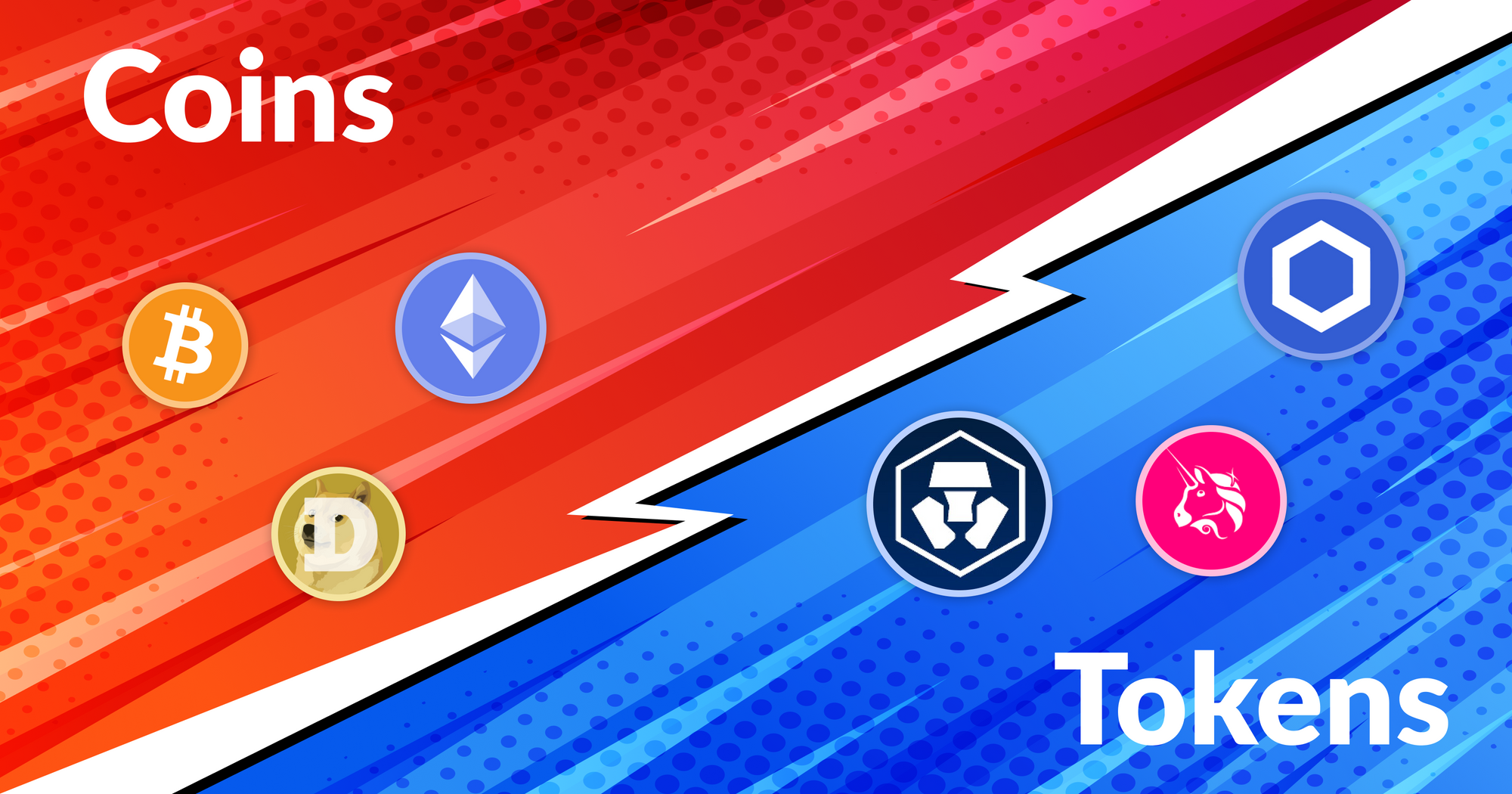Crypto trade has drawn much interest from investors and speculators in recent years. While most people take a systematic and education-first approach to crypto trading, many others see it as a get-rich-quick scheme. Moreover, since it is an emerging sector, there can be a lot of confusion and uncertainty about specific terminologies.
For instance, the words tokens and coins are often used interchangeably. However, even though people may think that tokens and cryptocurrencies are the same, they are not. On a fundamental level, all coins are considered tokens, but not all tokens are considered crypto coins. Nevertheless, the two are very similar from a user's perspective, so it is crucial to be mindful of the technical differences to make better trading decisions.
This blog will examine the reasons and logic behind determining what is what.
What is a Coin?
In simple terms, a coin is a cryptocurrency powered by its native blockchain. All transactions of that coin are recorded on its own blockchain. The blockchain serves as the ledger book of records. The best example of a crypto coin is Bitcoin (BTC). Not only is BTC the original cryptocurrency, but also the first crypto coin. Bitcoin has its blockchain known by the same name. Another example is Ether. Ether is a coin based on its native blockchain, "Ethereum".
This also explains why coins are more difficult to create than tokens. It is only possible to create a coin by first creating a blockchain. Then, coins are produced by validating transactions on a blockchain through a process called "Mining".
Since Bitcoin was the first cryptocurrency ever created, coins that emerged after that became known as altcoins or alternative coins, all altcoins have their own standalone, independent blockchain networks.
What is a Token?
A token is a digital unit of value that represents an asset or utility.
Tokens are not based on their own blockchain. Instead, they are issued on other existing blockchain networks. Tokens are not mined in the course of validating transactions on the blockchain. Instead, the process for creating tokens is called "Minting". The number of tokens minted depends on different conditions set by the issuing project.
A Token may fulfil different purposes. For example, some tokens are used to raise funds or to give access to a particular service, and some represent coins on another network.
Here are the key differences:
- A coin is usually native to a specific blockchain and used as a value store and a medium of trade. A token is similar, except that it uses another coin's blockchain. E.g.) BNB is a coin as it is a native token of the Binance Smart Chain. Ether is a native coin of the Ethereum Chain. In contrast, Tether and Dai are tokens as they do not have their own blockchains and are issued on top of existing networks.
- Whereas blockchains govern Crypto coin transactions, token trading is powered by smart contracts.
- Coins serve as digital money as they have the conventional characteristics of currencies: security, scarcity, durability, portability, and a store of value. Several crypto coins are gaining increased acceptance with global consumer chains. Tokens are used to achieve different purposes, for example, fundraising. Tokens are also used to enable users' interaction with a project's platform or applications. The project itself outlines the use cases of a token.
Conclusion
In conclusion, while many people use the terms "tokens" and "coins" interchangeably, it is essential to understand the differences between the two. Coins are cryptocurrencies that run on their own blockchain, while tokens are digital units of value that represent an asset or utility and are issued on existing blockchain networks. Coins serve as digital money, while tokens can serve different purposes, such as fundraising or providing access to a particular service. Understanding these technical differences is crucial for making informed trading decisions in the emerging and evolving world of cryptocurrency.





